Photographs: Reuters M R Venkatesh
She purchased a house in Chennai for Rs 57,000 in 1969. She sold the said property to her watchman for Rs 60,000 a year later in 1970. The Registrar, however, claimed that he was a witness to only Rs 15,000 exchanging hands.
The same day she entered into a lease agreement for renting the said property with the watchman for a monthly rent of Rs 100.
A couple of years later, the watchman sold the house to her mother for Rs 45,000 -- i.e. at a loss of Rs 15,000. Subsequently, the mother willed the said house back to her in 1973.
Who is she? She is Rajathi Ammal, wife of former chief minister of Tamil Nadu M Karunanidhi and mother of jailed Rajya Sabha MP Kanimozhi. Bewildered by the turn of events, the Sarkaria Commission -- that went into allegations of corruption against DMK chief M Karunanidhi and the then chief minister of Tamil Nadu in the mid-70s -- termed this (and several such instances) as 'scientific corruption'.
If corruption involved merely thousands of rupees in the mid-seventies, it involves several thousand millions of rupees now. One can blame that on inflation in the country. But let us not forget that the science of corruption too has developed in India since the 70s, more particularly when it involved a southern political party, to alarming proportions.
. . .
Law catches up with DMK, but what about the others?
Image: DMK heiress and Rajya Sabha MP Kanimozhi.Photographs: Reuters
The net result: corruption has become bigger, better, and more brazen. The operating word here is brazen.
Scam exposed by schism in the family?
Even by the admission of the Central Bureau of Investigation (which has conservatively estimated the possible revenue loss to the government), the scam was worth around Rs 22,000 crore (Rs 220 billion). The sum of Rs 200 crore (Rs 2 billion) revealed by the CBI in its chargesheet seems to be like the tip of the iceberg.
Surely those who know how our governments at the States and the Centre function know for sure that kickbacks are never as low as a per cent or two of the revenue foregone.
In fact, people who often work their way through the corridors of power point out that the ongoing rates for getting things done even legally -- euphemistically called 'speed money' or cash to hasten the process of decision making -- is well in excess of a per cent or two of the potential gains.
. . .
Law catches up with DMK, but what about the others?
Photographs: Reuters
More importantly, in cases where one has to bend the law -- as in the case of 2G spectrum allocation -- it is estimated that the sum payable to the powers-that-be will in all probability be in excess of 30 per cent of the potential gains!
Therefore, given the prevalent state of affairs in the country, it is indeed inexplicable that someone should be jailed for allegedly receiving graft of Rs 200 crore.
What is all the more interesting is that the persons chargesheeted and incarcerated happen to be a former minister, corporate honchos of a leading Indian business house, and a Rajya Sabha Member and daughter of former chief minister of Tamil Nadu.
Given these developments, one may be tempted to state that the law has finally caught up with those who violated the law. But has it?
It may be recalled that the first family of the DMK has faced several corruption allegations in the past. Interestingly, their opponents are never tired of pointing out the oft-repeated confession of M. Karunanidhi that he had travelled ticketless in a train six decades ago to Chennai from his native town.
. . .
Law catches up with DMK, but what about the others?
Image: Former telecom minister A Raja.Photographs: Reuters
From a ticketless traveller to being one of the richest families in Asia within a few decades is no ordinary feat.
But for a person who was charged with engaging in 'scientific corruption' in the mid-seventies, it is indeed intriguing that the law took over three decades to catch up on a mere Rs 200 crore-matter! And that too was by a remarkable accident. Let me elaborate.
Remember, that in mid-2007 the first family of the DMK had developed a serious fault line.
An ostensibly innocuous opinion poll in a Maran-controlled daily hailed the performance of Dayanidhi Maran as one of the best performing ministers of the UPA government. That set a chain of events that presumably culminated in the arrest of Kanimozhi last week.
The Maran-controlled media house was attacked by DMK loyalists in Madurai (the stronghold of Alagiri, Karunanidhi's son). In the melee three employees were killed. Marans immediately fell foul of the first family and Dayanidhi Maran had to resign from the Union Cabinet and make way for A Raja.
. . .
Law catches up with DMK, but what about the others?
Photographs: Reuters
Though they subsequently patched up by 2009, the fact remains that trust -- the key element in such a relationship -- is believed to have evaporated by then.
Nevertheless, in the interregnum it was this schism in the first family that is believed to have tipped some in the media to critically analyse the 2G spectrum scam in great detail.
But for this divide within the DMK family, experts wonder whether the 2G scam would have been exposed at all.
Naturally questions arise. Was the scam exposed simply because of schism in the family? Did the running feud between the Marans and others in the family, result in this unenviable situation for the DMK and its first family? Crucially, will there be more exposes, especially of any cash payments made?
The answer to these questions unfortunately seems to be a 'yes'.
. . .
Law catches up with DMK, but what about the others?
Photographs: Reuters
But what about the watchdogs?
That takes us to a more important question (given the magnitude of the scam, its brazenness and the fact that it was public knowledge since mid-2008), why is it that the system failed to identify culprits? Why is it that the government of India with all its offices and institutions dependent on such accidents in a family for the scam to be brought to be exposed?
Why is it that we expect the Supreme Court to step in and monitor these cases when as a matter of routine these should have been prevented by the administration in the first place? Why is it that our administration repeatedly abdicates its responsibility without any let or fear?
The answers to these questions are obvious. Those who believe that the Pakistani establishment was oblivious of the existence of Osama bin Laden in Abbottabad are entitled to believe that the Indian establishment was unaware of the 2G scam till events overtook them.
Till date the CBI has chargesheeted 17 persons (which includes three corporate houses). Yet, it is impossible to believe that the scam of this magnitude was orchestrated by this small number of persons and the rest in the establishment were not in the know of the scam.
. . .
Law catches up with DMK, but what about the others?
Photographs: Reuters
To me the 2G scam was caused partly by the avarice of some business houses and partly by the brazenness of some of our elected representatives. After all, their track record suggested that nothing would be amiss. But this alone could not have ensured this scam in all its dimensions.
It required active as well as passive connivance of someone within the establishment. Time has come to target those guilty of dereliction of their duty within the establishment. Yet there is not much of a whisper on the failure of our watchdogs to bark at an appropriate time.
If watchdogs fail to bark why have them at all at enormous costs to the exchequer?
The 2G scam is a simple story of Anybody, Somebody, Everybody and Nobody retold. Anybody could have prevented the scam. Somebody could have raised the alarm. In fact, Everybody is responsible, while Nobody did anything to prevent it.
The cabinet secretary, the revenue secretary, the law secretary or for that matter the finance secretary, could have prevented the scam. Yet each one of them did precious little to prevent the scam as it unfolded.
. . .
Law catches up with DMK, but what about the others?
Photographs: Reuters
Most in the top echelons of our bureaucracy have perfected the art of writing in green ink in the left hand margins after the note has been approved by half a dozen lower ranked officials. Little do they realise that even the boy at a tea stall could do the same without much ado!
Similarly, the law minister, finance minister or the prime minister too could have prevented the scam. But they apparently turned a Nelson's eye to the unfolding events. Of course, it is inappropriate to charge them as being a party to the scam, but their questionable silence is bound to raise eyebrows.
As pointed out, the 2G scam investigation was an outcome of a vigilant media tipped off by irate people thanks to the feud within the DMK family. That was serendipity at its very best. However, we cannot depend on family feuds every time to expose scams.
Rather, we need to have appropriate systems in place where watchdogs perform their role. Importantly, watchdogs should be punished should they refuse to bark when there is a need to.
The 2G scam is a perfect occasion for us to travel a bit further and punish all those who could have prevented the fraud and yet chose to remain silent. Should we fail, we would have learned no lesson from the 2G scam.
The author is a Chennai-based chartered accountant. Comments can be made at mrv@mrv.net.in


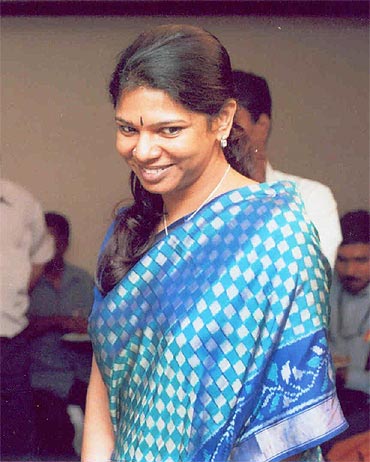
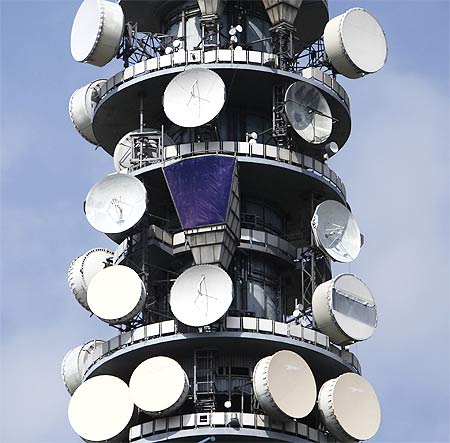
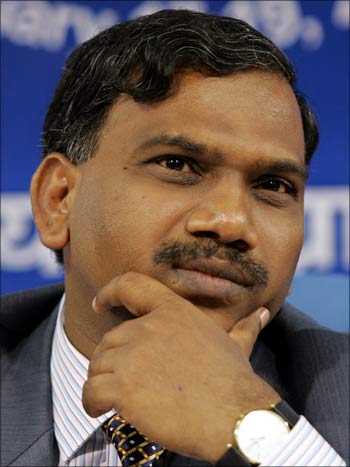
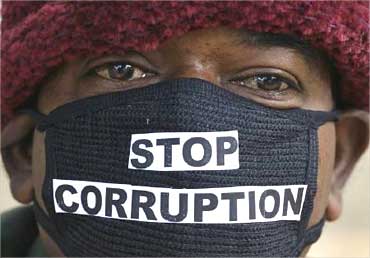

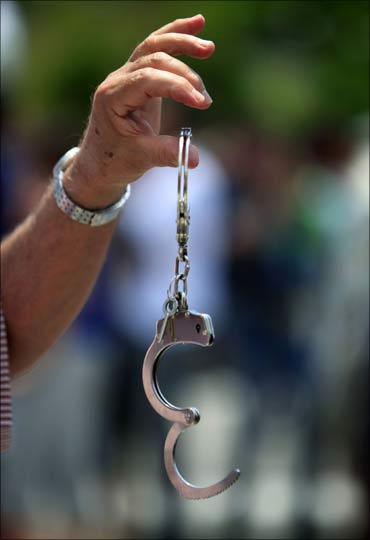
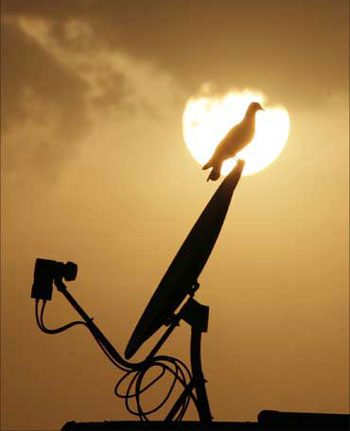
article